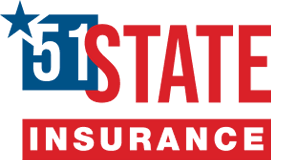Home Insurance Online in USA


What’s home insurance?
Home insurance is like having a safety net for your home and possessions – you’re protected in case of any unexpected events like natural disasters, theft, or accidents. It gives you a sense of security and stability for the whole family.
You’ll be paid whatever it takes to rebuild your home
If your home needs a bit of help, insurance will happily put it back in tip-top shape.
Your house contents are covered too
In case your household items and personal belongings get damaged, lost or stolen - you are covered.
Always have the roof over your head
If your insurance covers the damage to your home, they'll also take care of the costs for you to stay somewhere else, as long as it's reasonable, while you wait for your home to be livable again.
Who might need home insurance?
Just think – if something happens to your house or your belongings, will you have the financial means to replace them? Protecting your home and its contents is a responsible decision.
Homeowners
Your property and belongings, as well as protection from liability in case of accidents, are designed to be covered.
- Protection against financial loss
- Liability coverage
- Peace of mind
Renters
Comprehensive coverage that gives you peace of mind, knowing that you're protected.
- Protection against financial loss
- Liability coverage
- Additional living expenses coverage
Landlords
The protection you need to safeguard your rental property and your finances.
- Protection against financial loss
- Liability coverage
- Rental income protection
Flood
We'll work with you to determine the best coverage options for your needs, so you can protect your home in case of water disaster.
- Comprehensive coverage
- Tailored solutions
- Sense of security

Contact us today
Your home is one of the most valuable assets you own, and it’s important to protect it with the right insurance policy. At 51 State Insurance, we make it easy to get the coverage you need with our simple online quote process.

What type of home insurance coverage do I need?
When it comes to home insurance, there are two great options – buildings insurance and contents insurance. You can buy them separately or get them together as a combined policy.
Buildings Insurance
Maintains the integrity of the property, as well as any fixed features like walls, roofs, fitted kitchens, and bathrooms.
This project could also include your driveway, patio, walls, fences and any other outbuildings such as a garage – all of which can be included if desired!
If your home becomes unlivable, don’t worry – your expenses for temporary housing will likely be taken care of.
It’s important to note that if you’re renting a property, you won’t need to worry about getting buildings insurance – this only applies if you’ve taken out a mortgage loan.
Contents Insurance
We’ve got you covered for all your cherished household items, like your appliances, furniture, electronics, and jewellery – so you can rest easy knowing they’re protected in case of damage, loss, or theft.
No worries if something happens inside or outside your home – you can add extra coverage for a small cost.
For every product, the most we can cover is a certain amount – this is what we call the ‘single item limit’. Most of the time, this limit is $1,000.
If you have a possession of high value, you can add it to your policy to make sure that it is fully covered – no need to worry about not having enough coverage!
Combined Home Insurance
A bundled home and contents policy will safeguard your house and all of your possessions!
If you’re looking to save a bit of money, it’s usually more cost-effective to purchase both policies from the same provider.
It can be much easier if you’re making a claim, too! For instance, when there’s a fire, it’ll be much simpler to report the loss to one insurer instead of having to spread the news to two.
What does home insurance cover?
It’s important to check the policy documents provided by your insurance, as this will outline the exact coverage and exclusions that pertain to your policy.
What’s usually covered?
- Fire damage, explosion, lightning or earthquakes
- Storm and flooding from external water sources
- Burst and frozen pipes
- Malicious damage
- Subsidence, heave or landslip
- Theft or attempted theft
- Falling trees, branches, and TV aerials
- Impact by vehicle, aircraft, animal or flying objects
What’s not usually covered?
- Gradual wear and tear
- Accidental damage
- Mechanical breakdowns
- Damage as a result of poor workmanship
- Losses caused by negligence
The best insurance coverages in America
Trustindex verifies that the original source of the review is Google. Darina was super helpful and got me a much lower car insurance rate. Highly recommend!Trustindex verifies that the original source of the review is Google. If you are looking for a great deal and rate on car insurance, Darina is your girl! She is professional, efficient, and makes the process easy and smooth. Darina is super friendly and she is great at what she does. The rates are amazing and the company is top tier.Trustindex verifies that the original source of the review is Google. Darina was amazing! She helped me lower my car insurance significantly and made the whole process easy and stress-free. Highly recommend her for anyone looking to save on their insuranceTrustindex verifies that the original source of the review is Google. I can’t thank Darina enough for helping me lower my insurance rate. The entire process was incredibly smooth and stress free. She took the time to explain everything clearly, answered all my questions, and found a much better rate than I was paying before. I really appreciated how professional, knowledgeable, and patient she was with me throughout the entire process. If you’re looking for someone who genuinely cares and makes insurance easy to understand, I highly recommend working with her!Trustindex verifies that the original source of the review is Google. Darina is one of those rare insurance agents who actually listens before pitching. She took time to understand my situation, explained the options in plain language (no pushy jargon), and made sure I felt confident about my decision. No hard-sell vibes, just straight-up professional support. Communication was fast and consistent, and she didn’t ghost me once the policy was signed (huge respect for that — so many agents vanish after closing the deal). If you want someone who’s detail-oriented, transparent, and real about what coverage makes sense for your needs (and what doesn’t), Darina is the one to call. Highly recommend.Trustindex verifies that the original source of the review is Google. Huge thanks to Darina for helping me get a much better rate on my car insurance! She explained everything clearly and found me a deal I didn’t think was possible. Super professional and efficient!Trustindex verifies that the original source of the review is Google. THANK YOU SO MUCH, BEST SERVICE EVER!!!
Frequently asked questions
It’s important to reach out to law enforcement if a crime has been committed. Once you’ve done that, get in touch with your insurer to begin the claims process.
Don’t forget to document the incident – take photos or videos and keep any pertinent paperwork such as receipts and bank statements. Unless there’s an emergency situation, you’ll need to wait for your insurer’s approval before repairs can be made.
If you decide to make a claim, you’ll need to pay an excess. That excess consists of two parts: the compulsory excess – set by your insurer, – and the voluntary excess – which you choose.
If you’re looking to save on premiums, you could opt for a higher voluntary excess. Just make sure it’s something you can comfortably cover if you ever need to make a claim.
No worries! Most policies will have your phone covered while it’s in the house. If you’re looking to have it protected while you’re out and about, make sure to double check if the policy offers that away from home cover.
If your phone is worth more than the single article limit, you may just need to list it separately on your contents policy.
If you want to make some changes to your home, like building an extension, or doing any major structural renovations like re-plumbing the property, you should let your insurer know before any construction begins.
That way they can accurately assess the risks and make sure you’re covered. Don’t worry, you don’t need to inform them about simpler things like redecorating or fitting a new bathroom or kitchen. So go ahead and make your house your home – just make sure your insurer is in the loop!
Although your home insurance may provide some coverage, make sure you double-check that it will offer sufficient protection for all your business equipment and merchandise.
It’s always a good idea to let your home insurer know if you work from home – you may not need extra coverage, but not informing them could cause problems if you ever need to submit a claim.
Insurers will have a look, but the type of search they use won’t have any negative impact on your credit score.
It’s great that most home insurers cover bicycles as standard, but if you want added protection for your bike, you can opt for an extended policy. This will cover theft or damage to your bike away from home, so you can feel secure when out and about.
If you have a more expensive bicycle, such as one used in racing or competitions, it’s worth considering specialist bicycle insurance.
When you move your house, be sure to let your insurance provider know – they can sometimes transfer your policy to your new place.
Depending on the difference between your old and new addresses, there may be a small additional cost. Don’t forget to check if using a professional removal service covers your belongings during the move.
How to get home insurance online in United States of America?
Our knowledgeable agents will help you find the coverage that’s right for you, at the price you can afford.

Make request
We’ll ask you a few questions about your insurance needs and provide you with a personalized quote

Cost calculation

